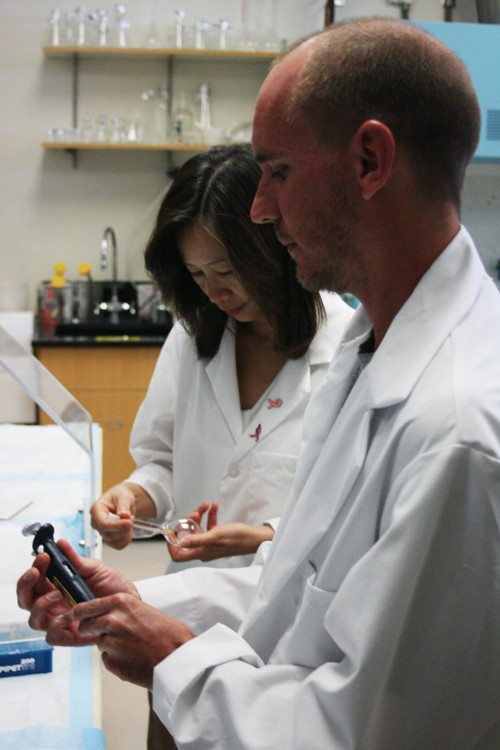*Correction*
An earlier version of this story incorrectly stated the HPV study in the article was being done at University Medical Center by UMC Researchers. The study is actually being done at the Arizona Cancer Center by Arizona Cancer Center Researchers. The two are separate entities. The Wildcat regrets the error. The corrected version of the story is below.
—
Arizona Cancer Center researchers are trying to see if a green tea extract could help clear the human papillomavirus.
The team is still enrolling test subjects to participate in a four-month study of the effects of a chemical known as Polyphenon E, which is present in green tea, on patients with HPV or an abnormal pap smear.
The team is calling for about 156 test subjects, and once quota is met the team will split the pool into two groups. One group will receive the Polyphenon E in the form of a pill, and the other team will be given a placebo, explained Bonnie Weible, the study’s coordinator at the Arizona Cancer Center.
The study is known as a double-blinded placebo controlled experiment because the two groups have no idea if they are receiving the Polyphenon E, nor does the study coordinator. That information will be revealed at the end of the study.
Test subjects will complete six study visits spread out across the four-month period, and will be compensated $250, explained experiment leaders.
Past experiments have shown that the green tea extract helps the body’s immune system clear up cervical lesions, thus it could potentially help those with the HPV virus. These results landed the cancer center’s research team on their theory.
“”We are trying to prove that the group of women that are put on the Polyphenon E, more of them will clear the HPV than the women on the placebo,”” Weible said, “”because a person’s immune system can clear up on it’s own.””









